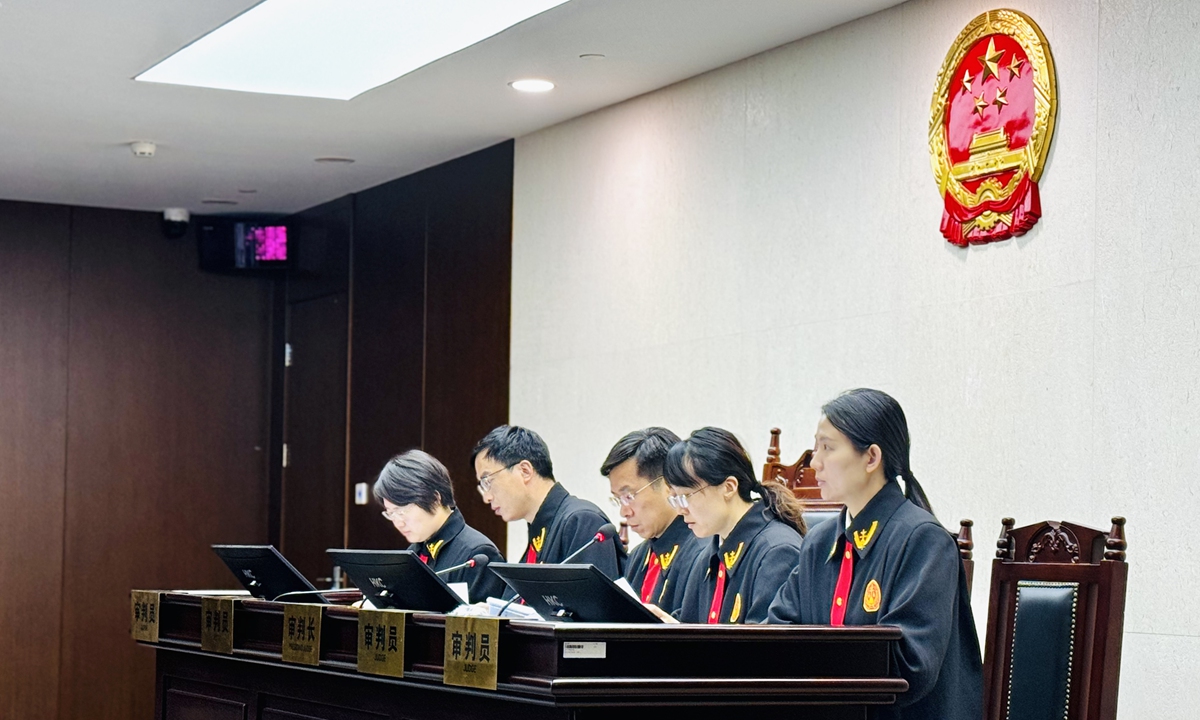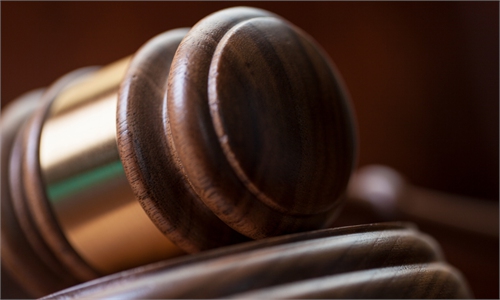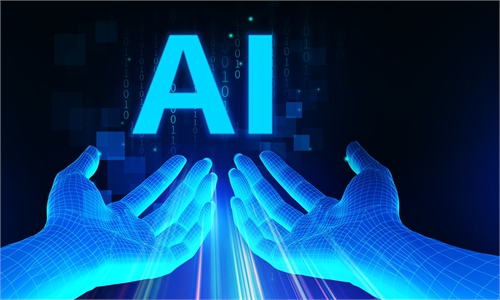
The Beijing Internet Court presides over the country's first AI voice rights case on April 23, 2024. Photo: Liu Caiyu/GT
The Beijing Internet Court ruled on Tuesday that a software company had infringed upon a person's rights after the company used an AI-powered tool to replicate her voice, without her consent, and sold it to other platforms.
This case is the first of its kind being ruled on in China, sounding an alarm for AI enterprises that they must obtain legal authorization before using a person's voice for large-model trainings and development.
The plaintiff, a voice-over artist surnamed Yin, found out in May, 2023 that her voice was being used in numerous audiobooks online without her consent. After investigating, she discovered that an AI-powered tool was being used to replicate her voice and sell it to different platforms for profit.
Yin believes that it was one cultural media company, with whom she had previous business dealings, that handed over the audio recordings of her audiobooks to another software company which then processed Yin's voice using AI technology and sold it to operator of the app "Magic Sound Workshop."
The court decided that the defendants - the cultural media company and the software company - are jointly responsible for compensating Yin for economic losses of 250,000 yuan ($34,507).
The operator of the app and the software company are also required to issue an apology to the plaintiff within seven days of the judgment taking effect.
Zhao Ruigang, vice-president of the Beijing Internet Court, told the Global Times that the case reflects an entire process of how a common audiobook being used as training material of AI and then finally being used in the product end. It reminds AI companies to first obtain legal authorization from individuals for their voice rights before further training, developing or selling their products, Zhao noted.
The court's ruling stated that a natural person's voice is identified by voiceprint tone and frequency, possessing unique and stable characteristics that can evoke thoughts or emotions associated with that individual. While a natural voice may be less recognizable after artificial intelligence synthesis, it does not imply that it is not legally protected, as the technology does not always sever the link with natural human voices.
In this scenario, even after AI synthesis, voices can still enable the public to create thoughts or emotions associated with the plaintiff, connecting that voice directly to the plaintiff and revealing her identity, the ruling said.
The new Civil Code protects the right to voice as an emerging portrait rights. This means that it is prohibited for any individual or entity to alter, damage, or falsify someone's voice, or to manipulate it using technology. The law prohibits the creation, utilization, or dissemination of someone's voice without their consent.
Li Zonghui, a research fellow Nanjing University of Aeronautics and Astronautics on AI rule of law, told the Global Times the case provides reference for similar AI disputes that if the AI-processed voice can still trace back to a natural person, it is a legitimate right that cannot be infringed upon.
Online platforms should also strengthen management and take measures such as removing infringing videos in a timely manner to better regulate AI industry, Li noted.
The nature of generative AI requires collecting a wide range of existing materials, including texts, images, and other works, even those still protected by copyright, thus it poses a significant risk of copyright infringement, Li said.




